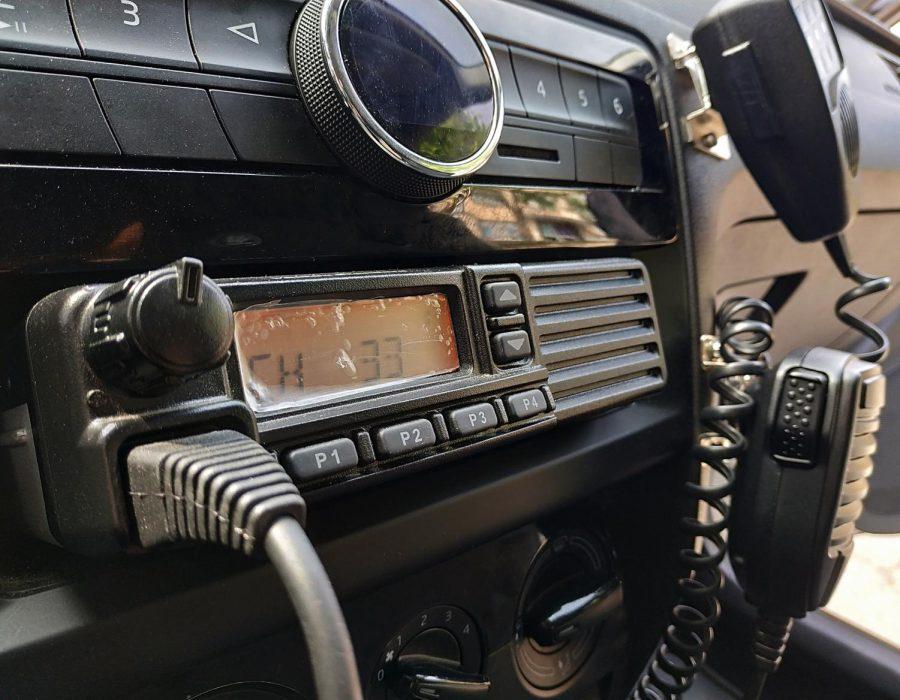Media, legislators sound alarm on law enforcement radio encryption
Concerns raised over public’s access to critical information
May 10, 2022
For editors and reporters, access to the police scanner is a critical — and immediate — news source when covering breaking news, be it a massive fire raging through a community or rescue workers trying to find a child swept away in a creek.
That access is being threatened in California now that dozens of law enforcement agencies, including the San Diego County Sheriff’s Department, have made the decision to fully encrypt their communications based on a directive from the agency whose statewide computer network provides criminal histories, driver records and other public safety information.
The Sheriff’s Department has put its alternative to scanners on a website that updates every four minutes as calls come in to dispatch. It describes the nature of the call, the location, and assigns a number to the call.
This reporter saw a “suspicious person” call from Encinitas pop up on the screen and then disappear a short time later. It’s unclear what happened on the call. It’s clear to see that the website does not provide the immediate information that a scanner would.
And therein lies the problem, say journalists across the state and here in San Diego.
If there is a breaking story, and as a journalist or citizen you’re trying to find out more about it, then the website doesn’t help. For example, you and your neighbors are wondering if the “suspicious person” is the same one working in your neighborhood previously. What does he look like? What is he wearing? Is he in a car? How can you find out more on a Sunday evening or early morning weekday from the Sheriff’s Department?
Or maybe you want to know something as simple as why helicopters are up over your neighborhood. Scanner traffic would tell you; the website would provide no details.
Nevertheless, the department believes this new link is an appropriate substitute for detailed, real-time information.
“I can tell you that the San Diego County Sheriff’s Department values our communication with members of the press and the public,” said Lt. Amber Baggs, media relations director for the Sheriff’s Department. “We want to keep them informed.”
For 80 years, the information transmitted via the scanners has increased transparency and accountability of law enforcement agencies for both the public and the media.
The California Law Enforcement Telecommunications System opened the door to this move to encrypt communications in late 2020 when it stated that police agencies have to protect “identifying information” during transmission. But the agencies that are shutting down access are shutting everything down, not just the “identifying information” that the directive called for.
The California News Publishers Association has stated that “some law enforcement agencies have used this as a justification to encrypt all radio transmissions, cutting off necessary transparency.”
This, in turn, has led to pushback from media organizations and the introduction of state Senate Bill 1000, known as the Public’s Right to the Police Radio Communications Act. Sen. Josh Becker, D-San Mateo, said he introduced the bill because “now is not the time to reduce public access to police activity.”
“Access to information regarding police activity is not an ‘operational change’ that should be taken without input from the public, the media, or city, county and state elected officials,” Becker said.
He said passage of his bill is critical to restore the public’s ability to listen to law enforcement scanners. If approved, the legislation would allow media and public access starting Jan. 1, 2023, to police communications as long as it does not reveal undercover operations or include confidential information.
The proposed legislation has cleared the Senate Public Safety Committee and is now headed to Appropriations. The region has a legislator who sits on that influential committee, Sen. Brian Jones, R-San Diego. You can track the bill’s progress online.
Local media representatives are united in their opposition to the encrypted communications and support of Becker’s legislation.
Cliff Albert, a 41-year veteran of the local news business, said encryption “would be a disservice to the public.”
Albert, who is news director at 600 KOGO Newsradio, said encryption “would make it harder for the community not only to be properly informed and in a timely way, but it also would be more difficult to alert members of the public about potentially dangerous situations that they need to know about.”
Miriam Raftery, editor of online news site East County Magazine, agrees.
“There is simply no legitimate reason for our sheriff to take all scanner communications away from the public,” she said.
Raftery noted that smaller police departments such as La Mesa and El Cajon have encrypted all communications, while the San Diego Police Department moved only private information to a separate secure channel and kept the rest available.
She complained that the Sheriff’s Department has the ability to use separate secure channels when necessary but has chosen not to do so.
Paul Krueger, recently retired NBC 7 producer, said, “I support any legislation that protects the media’s — and the public’s — ability to monitor law enforcement activities without endangering our police and fire safety officers. As a longtime local journalist who worked in both print and electronic media, I know how much working journalists need access to police and fire dispatch to keep the public informed.”
Californians Aware and its assistant general counsel, Shaila Nathu, have written in support of the bill because “access to police radio communications is a critical tool in the fight for police transparency and accountability. SB 1000 proactively requires that these tools are accessible to the press and the public.”
Raftery concurred, saying, “While I agree that victims’ personal details should be kept private, this should not be used as an excuse to prevent access by the press and public to the vast majority of scanner traffic.”
J.W. August is a longtime San Diego broadcast and digital journalist. He serves on the Californians Aware Board of Directors.
encinitas current, cardiff current




